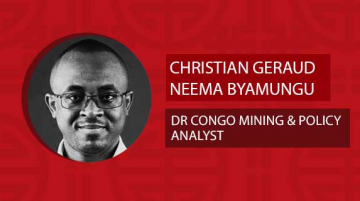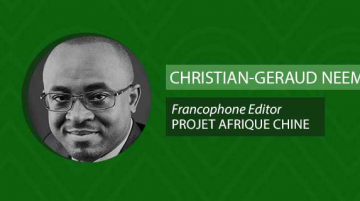
When critics of the Chinese in Africa make their case, the Collum coal mine in Zambia is invariably on their list of grievances. The controversial mine has been the site of violent labor disputes that have severely injured, even killed, both Zambians and Chinese. After a three-year closure, the mine re-opened in April amid concerns the labor and environmental violations that prompted its closing in 2012 remain un-resolved. President Edgar Lungu, for his part, said there is no reason to worry and that the “government would not hesitate to close the mine once again if there is no improvement of operations.”
The Collum coal mine, for the most part, is largely insignificant in the broader context of China’s engagement in Africa. It doesn’t produce much coal and what it actually does extract is of relatively low quality. Nonetheless, the mine has become a symbol of the difficulties and promise of the Chinese in Africa.
This week, Eric & Cobus speak with two of the world’s leading experts on Sino-Zambia relations and the Collum coal mine in particular. Professor Barry Sautman of the Hong Kong University of Science and Technology and Dr. Yan Hairong of Hong Kong Polytechnic University explain why they are not optimistic about the future of the Collum mine and why any expectations that-held grievances have been resolved should be limited.
Some of the information referenced in this week’s show can be found here:
- The New Yorker: China. Zambia and a clash in a coal mine
- The Wall Street Journal: Zambia re-opens Chinese-owned Collum coal mine
- The BBC World Service: Zambia seizes control of Chinese-owned mine amid safety fears
About Professor Barry Sautman Barry Sautman is a political scientist (PhD Columbia University) and lawyer (JD UCLA, LLM NYU) who primarily teaches international law, China/US relations, contemporary China, ethnicity and nationalism. One of his areas of research has been ethnic politics in China and comparative perspective, including ethnic policies, the political economic and legal aspects of the Tibet and Xinjiang issues. He has examined the global mystification by politicians and media of these questions, as well as the issue of dissent in China. His other area is China-Africa links, including political economy, labor rights, migration between China and Africa and interactions between Chinese and Africans, representations and perceptions of China and Chinese in Africa, and the supposed strategic rivalry between the US and China in Africa. He has published several monographs and numerous journal articles, as well as print media op-ed pieces and online contributions.
Barry Sautman is a political scientist (PhD Columbia University) and lawyer (JD UCLA, LLM NYU) who primarily teaches international law, China/US relations, contemporary China, ethnicity and nationalism. One of his areas of research has been ethnic politics in China and comparative perspective, including ethnic policies, the political economic and legal aspects of the Tibet and Xinjiang issues. He has examined the global mystification by politicians and media of these questions, as well as the issue of dissent in China. His other area is China-Africa links, including political economy, labor rights, migration between China and Africa and interactions between Chinese and Africans, representations and perceptions of China and Chinese in Africa, and the supposed strategic rivalry between the US and China in Africa. He has published several monographs and numerous journal articles, as well as print media op-ed pieces and online contributions.
About Dr. Yan Hairong Yan Hairong is an anthropologist teaching in Hong Kong Polytechnic University. She received her PhD from the University of Washington and MA from University of California, Berkeley. Yan has published articles on not only China-Africa relations, but also Chinese proverbs, modernization in East Asia, and the discourse of development. She has been particularly active in discussion Chinese copper mining in Zambia. She has published a number of monographs and numerous journal articles, as well as op-eds and online contributions.
Yan Hairong is an anthropologist teaching in Hong Kong Polytechnic University. She received her PhD from the University of Washington and MA from University of California, Berkeley. Yan has published articles on not only China-Africa relations, but also Chinese proverbs, modernization in East Asia, and the discourse of development. She has been particularly active in discussion Chinese copper mining in Zambia. She has published a number of monographs and numerous journal articles, as well as op-eds and online contributions.








